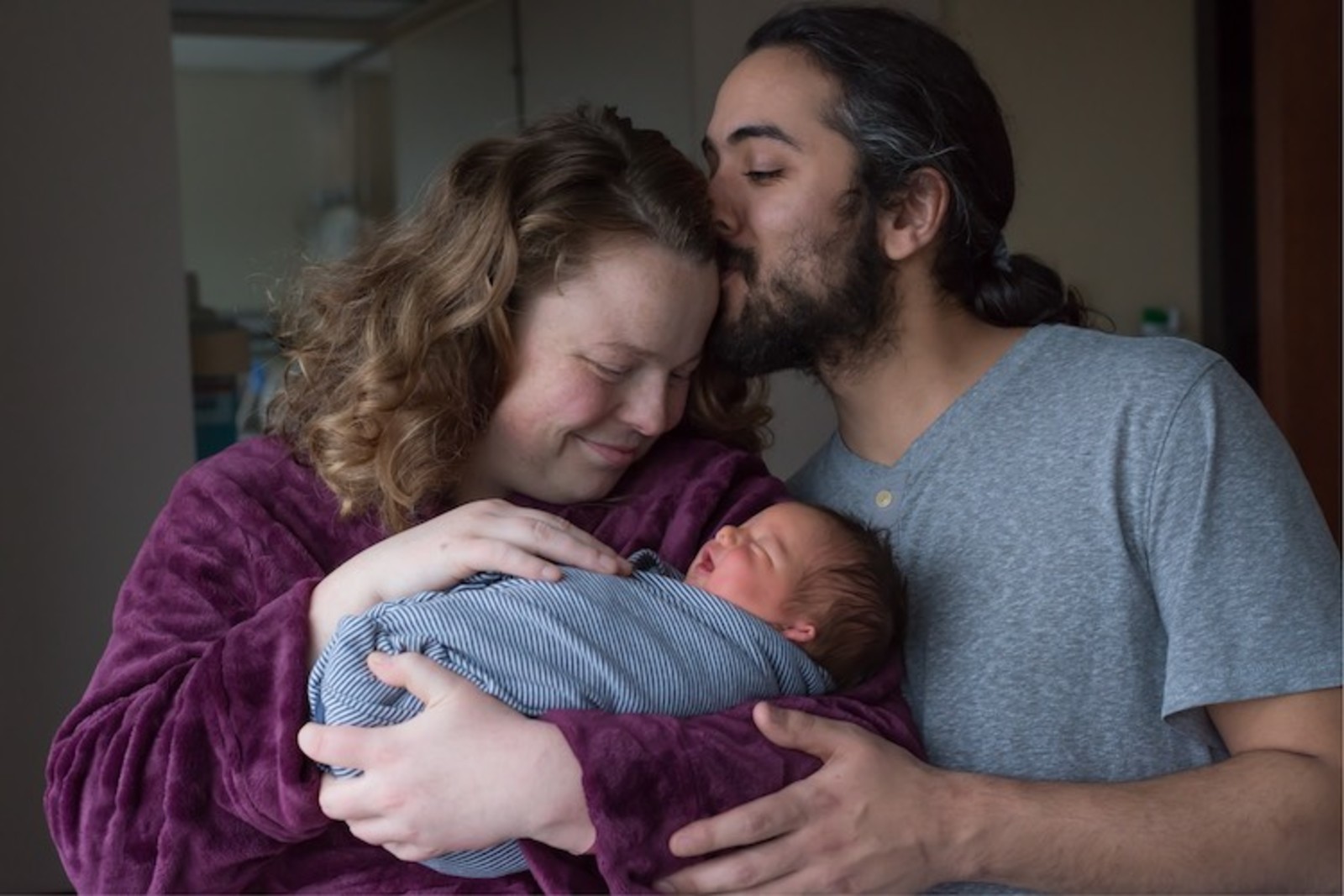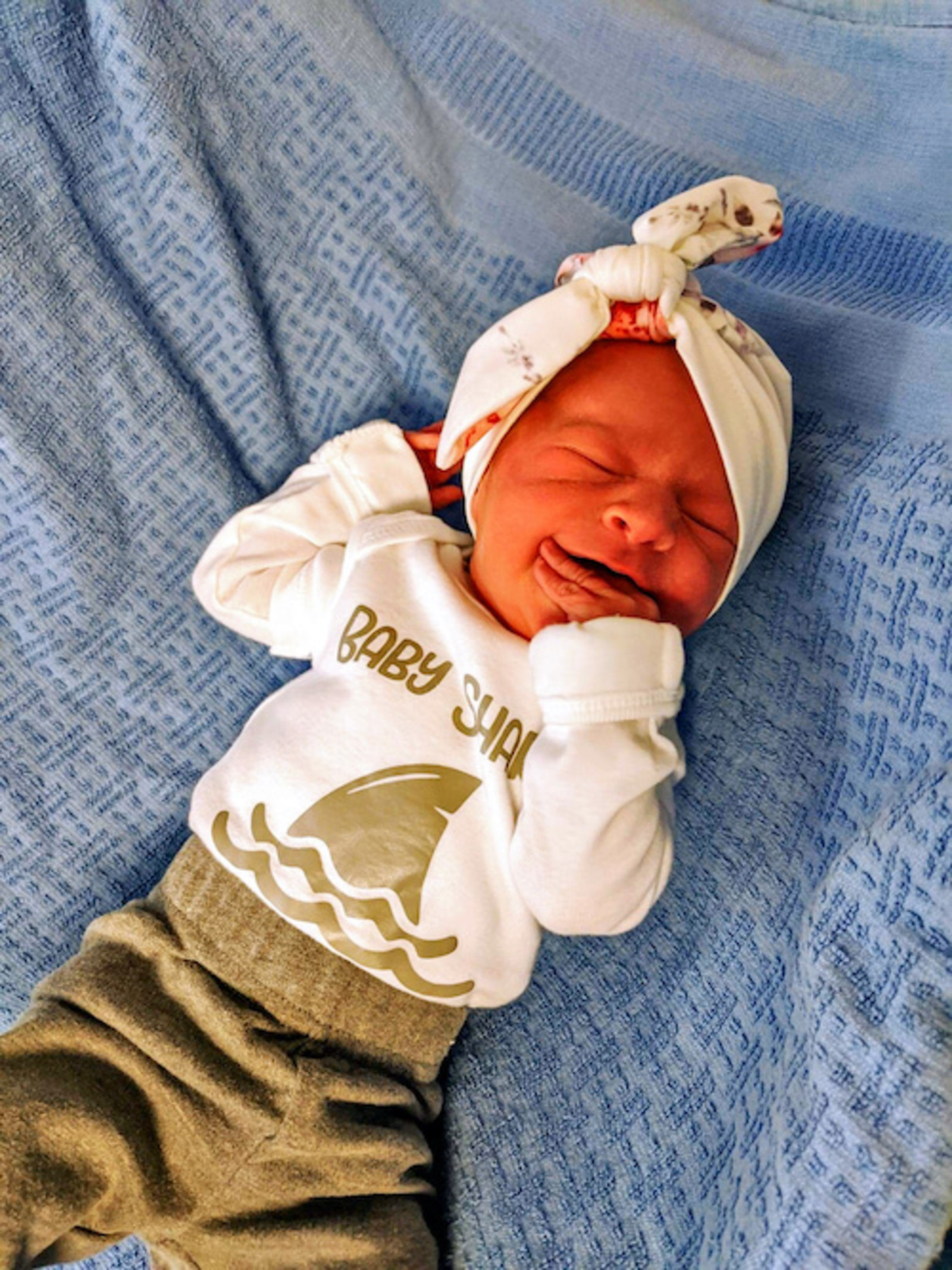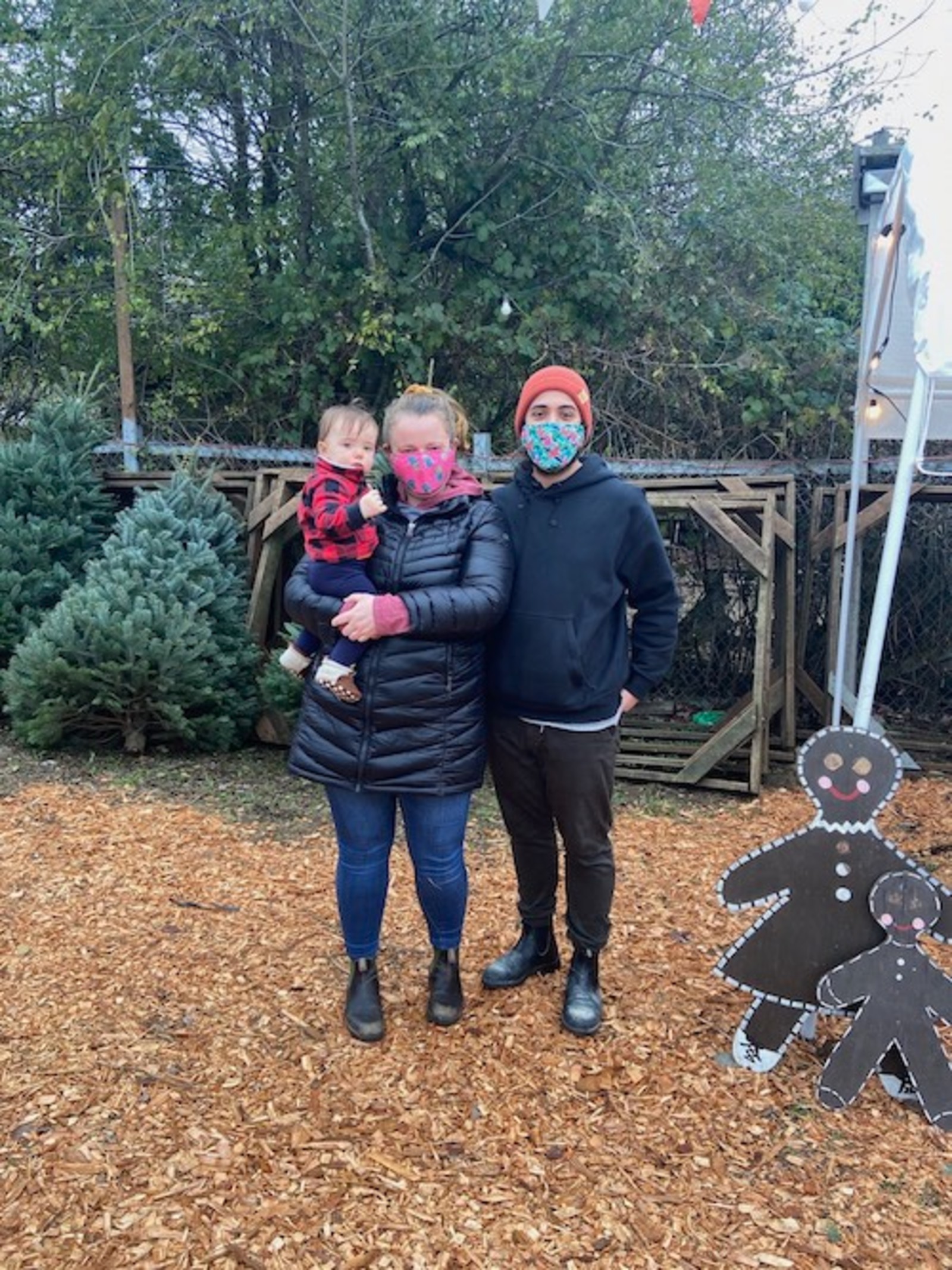Zoom Baby Showers, Few Visitors and Lots of Masks

Giving birth and nurturing an infant during a pandemic has many new challenges.
When Ted Bartlett, the general manager at our Magnolia store, called Swedish Hospital’s First Hill Birthing Center to report that his wife had gone into labor, he had two concerns new to most first-time parents: how much extra time to allow for Covid-19 protocols and how to contend with the snarled city traffic from the protest march on I-5.
“We went in 12 hours before they would have asked us to come in, but we didn’t know if we could get there,” says Ted. “We wound up spending an extra night in the hospital. We were sequestered in our room for the entire time we were there. I couldn’t run down to Starbucks. Everything had to be delivered to us. We did sneak in a Pagliacci pizza, though.”
Giving birth during the best of times is fraught, but Covid-19 has added layers of complexity. From gloves and masks in the delivery room to baby showers and visits from family and friends, so much is different—like everything this year. And not just for those giving birth, but also for those with infants and young toddlers.
Michael Maganinho, the general manager at our Edmonds store, and his girlfriend got safely through the delivery room in December, but the pandemic has still impacted their experience. Their daughter, Reya, was about four months old when Seattle’s lockdown restrictions first went into place. Until then, they had been swapping an evening of baby care with another family who had a baby two weeks before they did.

“We had to put a pause on that for a while, and Reya lost her only friend,” says Michael. “Plus, suddenly everyone was wearing masks when we took her out. Babies want to see faces. Try explaining to a four-month-old why everyone is suddenly hiding their faces.”
For Ted, thinking differently started well before their anxious trip to the birthing center. His wife is from the East Coast and had planned to fly to Boston for a big baby shower with friends and family but had to cancel for obvious reasons. In its place, they organized three separate Zoom baby showers.
“We made light of it,” says Ted. “We played ‘Guess how many squares of toilet paper it takes to wrap her belly’ amid the great toilet paper shortage. Could have been worse. I’m super thankful that Zoom and video conference calls even exist. Doing this five years ago would have been a totally different situation.”
And once Ella James was born, Ted and his wife weren’t allowed to invite visitors to the hospital to see the newborn (but they did watch a protest march from their hospital window). Nor could they invite friends and family to swing by the house to hold the precious swaddled one. “We didn’t get to have a big Come-Meet-Our-Bundle-of-Joy celebration of any kind,” says Ted. “On the other hand, nobody had any plans, so it made it easier to set up casual drop-ins.”

At some point, they’ll get Ella James to Boston to see the rest of the family. “That’s been the hardest part,” says Ted. “There are all these people who want to see and hold her, but it’s just not an option right now.”
Since childcare is much more complicated right now, working from home makes some things easier, such as nursing. But it, too, has its challenges. Michael’s girlfriend is a cello teacher. She teaches all her lessons online now, which has the benefit of lowering her risk of exposure to Covid-19, and she has been able to expand her student base. On the other hand, her daughter Rhea is just starting to walk and can always hear Mom’s cello in the other room. “She’ll go the door and go ma-ma-ma-ma,” says Michael.

While many things about having a baby during a pandemic have been different, some have been remarkably normal—like exhaustion that comes with raising an infant. And on this count, the pandemic has provided a backhanded benefit: with so little going on in the social and cultural world of our city, you don’t feel like you’re missing out on much

